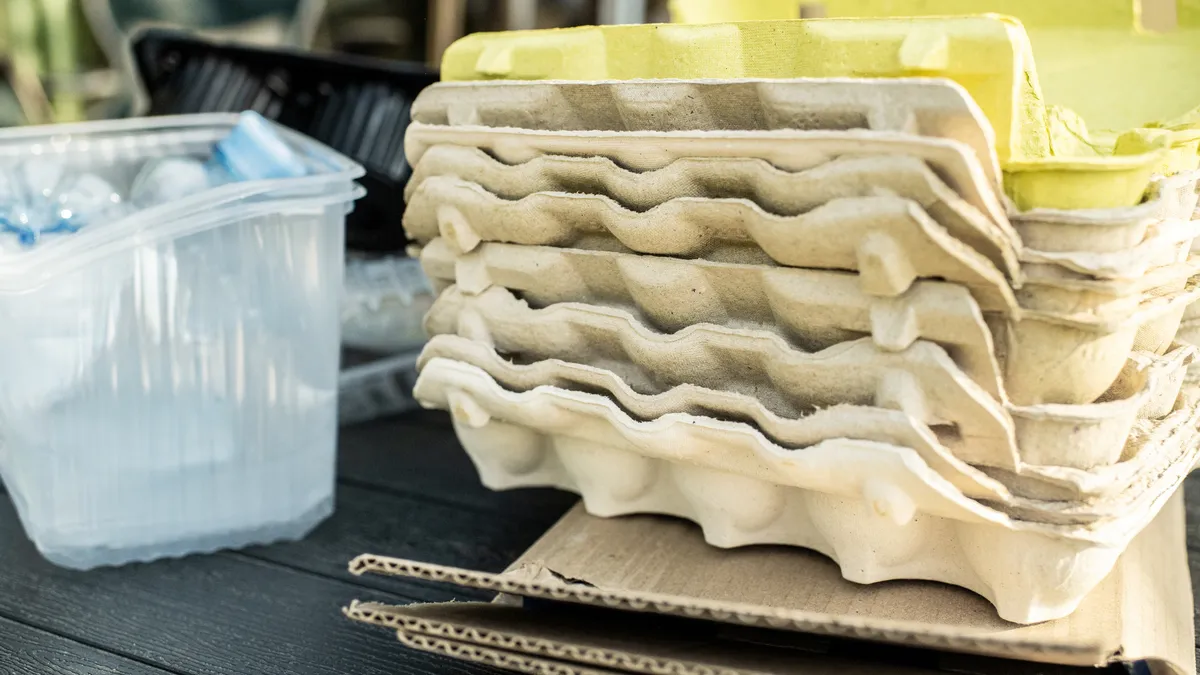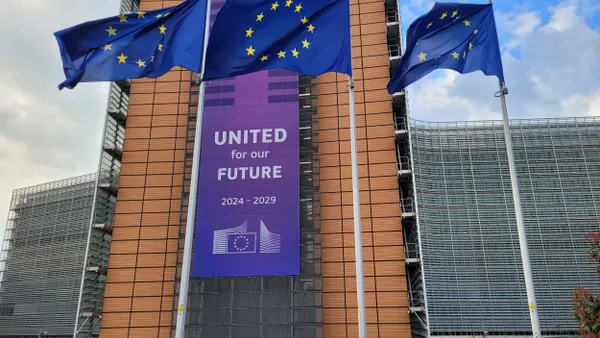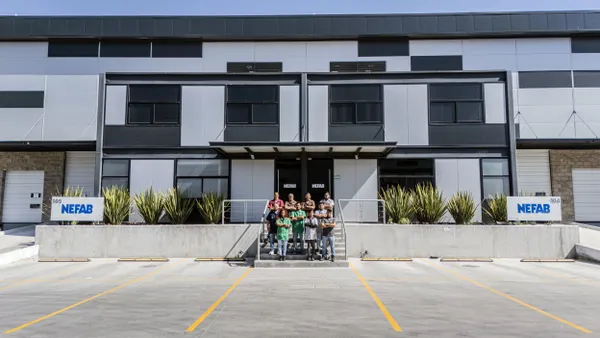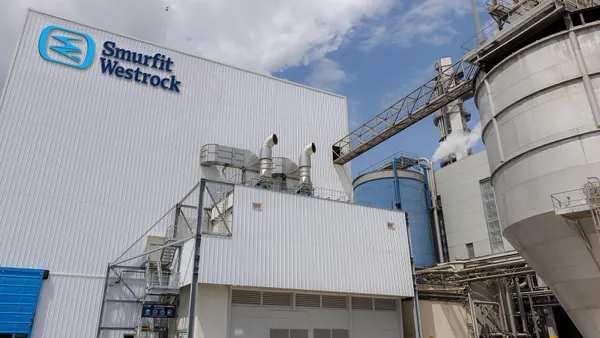- Q4 readout and outlook: Overall, volumes declined 3% during Berry Global’s fiscal fourth quarter, which ended Sept. 30. The company said this was a better-than-expected result that reflected sequential improvement. New CEO Kevin Kwilinski, who was announced as the new leader in August and took over in October, helmed Thursday’s earnings call. The company said its Q4 and full-year fiscal 2023 exceeded its earnings per share and free cash flow targets. For fiscal year 2024, Berry expects free cash flow between $800 million and $900 million. “Given the easing of inflation and easier comparisons year-over-year, we expect volumes to improve as we progress through fiscal 2024,” Kwilinski said.
- Domestic and international trends: Quarterly revenues in Berry’s consumer packaging North America division were down 12.8% to $786 million. The company cited the pass-through of lower resin prices in the U.S., softer overall customer demand, especially in industrial markets, and efforts to boost its sales mix to “higher value products” among the factors contributing to those results. The year-over-year decline in the consumer packaging international division was less precipitous, down 5.6% to $1 billion. Berry cited similar factors.
- Optimizing operations: Kwilinski highlighted the company’s efforts to adjust prices to recover inflation, reduce costs, close certain plants and other optimization steps. For instance, Berry announced during the quarter it would convert a Woodstock, Illinois, manufacturing facility to a distribution center. Since the start of his CEO tenure, Kwilinski has visited about eight facilities so far, he said, where he’s focused on productivity.
- Reviewing the Health, Hygiene, & Specialties division: In September, Berry announced it was reviewing “strategic alternatives” for its HHS division. Revenues were down 17% in the quarter. In Thursday’s earnings release, the company stated there is “no certainty” as to a formal decision or timeline on the future of the HHS business. Kwilinski explained during the call that that division “looks a lot more like being in the paper business,” and that it’s more cyclical and requires more capital than Berry’s other businesses. “We want investors to understand our story and to know when they buy our stock what they're getting and what they're invested in. So we need to make sure that when we think about our portfolio, it looks alike and we're not confusing and we're not [closing ourselves off to investors] we would like to have because we have a very complicated story.” Kwilinski said earlier in the call that the team continues to see its shares as “undervalued.”
- Growth philosophy: Berry will be more focused on organic growth than on M&A going forward, Kwilinski said, but acquisitions could potentially help accelerate that growth. “I think we need to make sure that the lens that we're using is highly focused on the future organic growth that it exposes us to, that it gives us new capabilities and know-how in order to spread across the business,” Kwilinski said. “We need to make sure that acquisitions we do are also part of our overall organic growth strategy and that they are meant to accelerate the underlying organic growth of the company.”
- Sustainability: CFO Mark Miles said in Berry’s food service business, its recyclable polypropylene cups are taking share from paper and foam alternatives. Kwilinski described the importance of opportunities around sustainability and being less siloed going forward in anticipation of more regulatory changes. “We are operating in Europe and we are seeing where legislation is going and the opportunities it creates for new sorts of highly recyclable, high-recycled content, advanced recycled-containing plastic products that the consumers want that fit within extended producer responsibility and returnable, reusable options. And those drive very large opportunities for growth and share gain if we have products that are superior and differentiated,” Kwilinski said, adding that what’s happening in Europe “is going to end up happening here in the U.S. and other markets.”

Berry’s new CEO talks organic growth, sustainability opportunities
Fiscal year 2023 saw a nearly 13% decline in net sales. CEO Kevin Kwilinski, who took the helm in October, said Berry is focused on organic growth, productivity and sustainability.
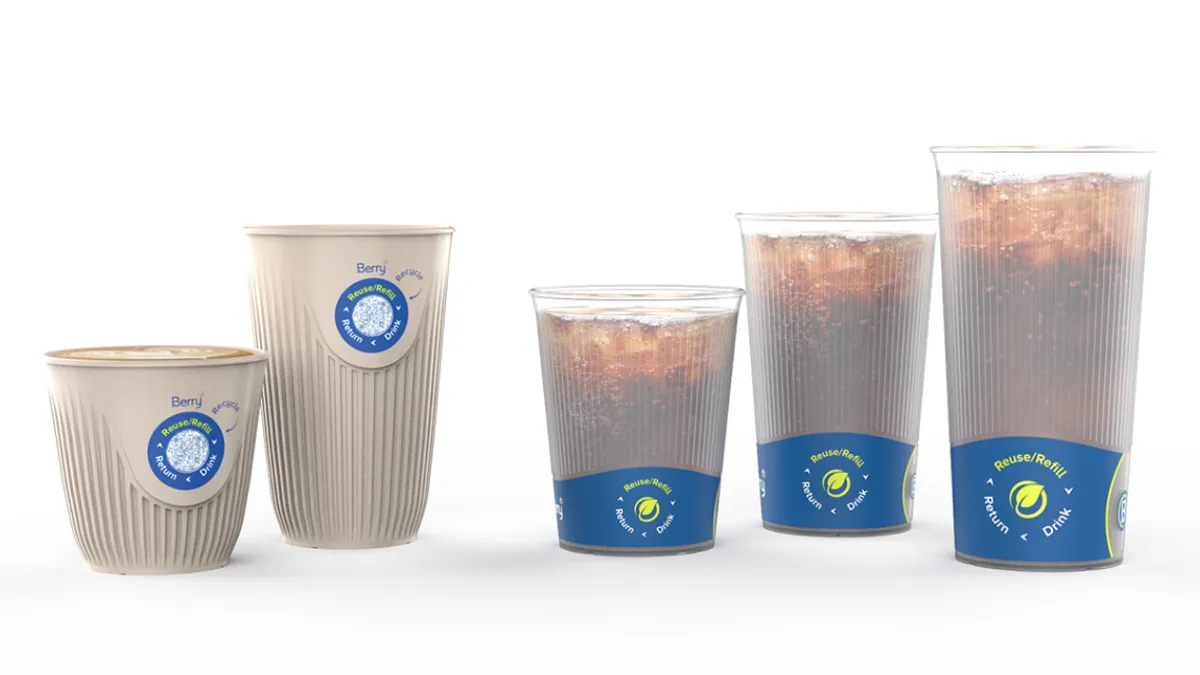
Recommended Reading
- Berry Global names new CEO By Katie Pyzyk • Aug. 15, 2023
- Berry closed 20 facilities last quarter to optimize footprint By Katie Pyzyk • Aug. 10, 2023



